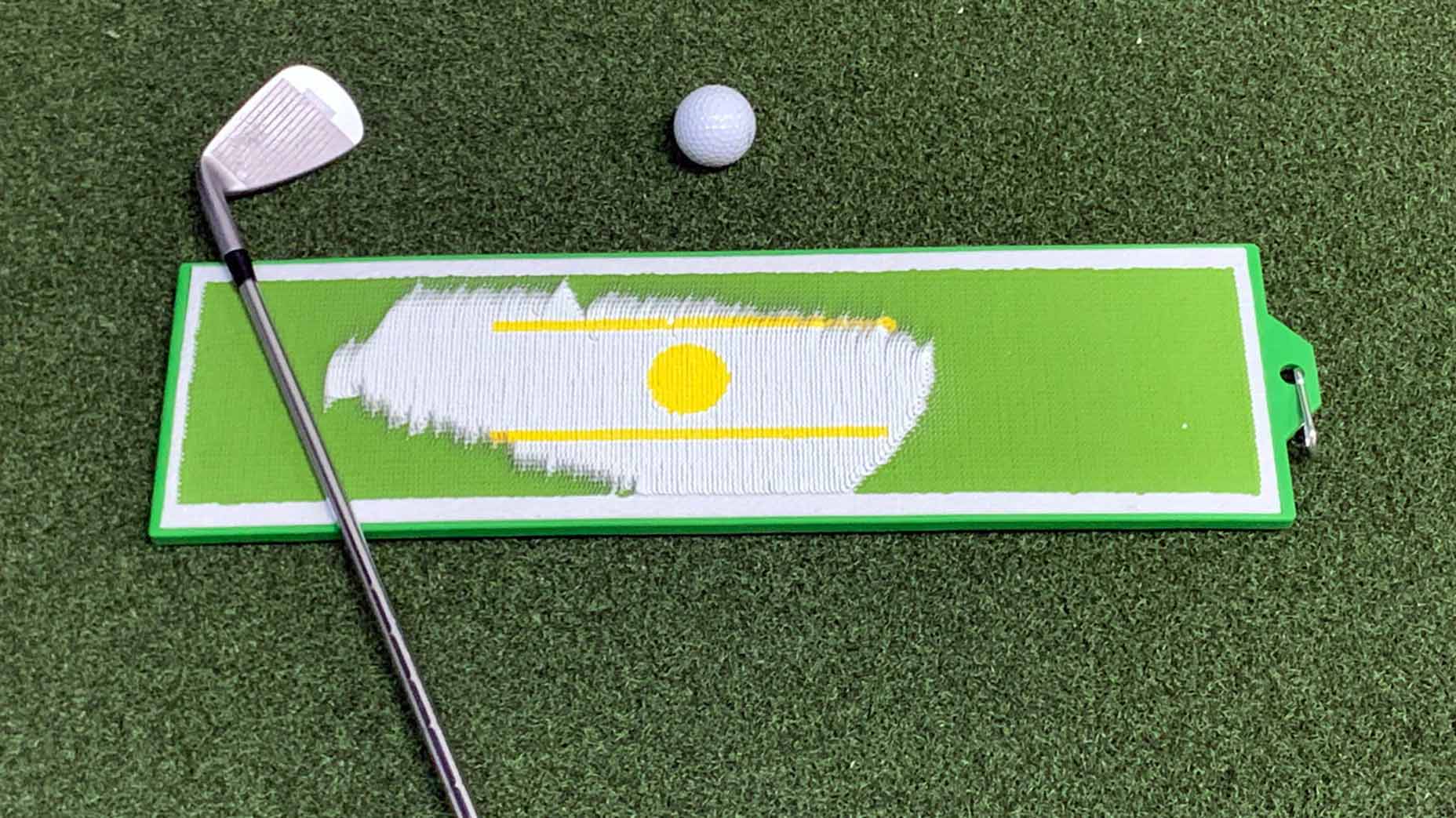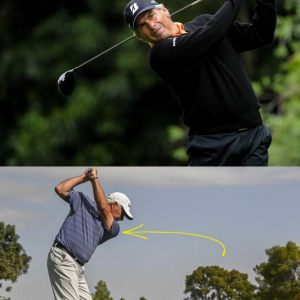This offseason marks the beginning of many golfers’ annual journeys to perfect their swing — and this viral training aid can help. The Divot Board might have been popularized on social media but it’s not a gimmicky practice device. This tool can boost your game by honing in on arguably the most important aspect of your swing: the low point.
To put it simply, the low point is — of course — the lowest point of the golf swing. And what you do at the lowest point of your swing influences your contact, consistency, control and the overall quality of the strike. It can even impact speed and distance.
So how exactly does this training aid help?

The Divot Board’s design is simple. The green astroturf-like material turns white when you swipe your club across the pad, which provides clear visual feedback and allows you to analyze your divot (or the low point of your swing). With this information you can see your swing path, club-face position, where you hit it on the face and when your club entered the ground all in real time.
For example, a swing path for right-handed players that’s too in-to-out will veer right of the intended target line. The chart below can help you learn how to interpret your divots and start pinpointing the issues in your golf swing.
Guide for reading Divot Board feedback
Analyze the quality of your strike with the Divot Board. Fairway Jockey
For an added benefit, you can also place a ball onto the mat to see how it reacts to your mishits, which can better equip you to make on-course adjustments when you notice those faults leaking into your game.
And it’s not just useful for full-swing adjustments. GOLF’s game improvement editor, Nick Dimengo, recently took the divot board out to a local pitch-and-putt and was able to produce chips that hopped and stopped right next to the hole.
So maybe it’s time to eliminate guesswork with this simple tool and make fast fixes that will optimize your low point and help you become a better ball-striker.





